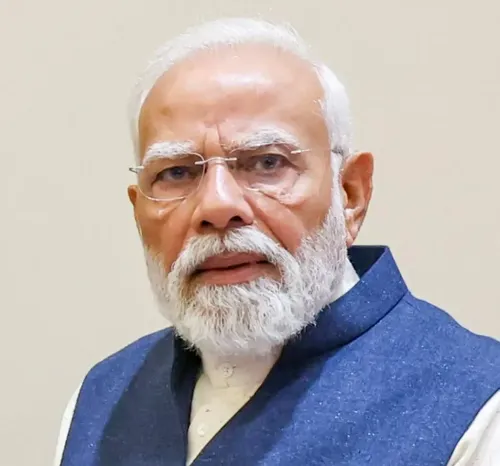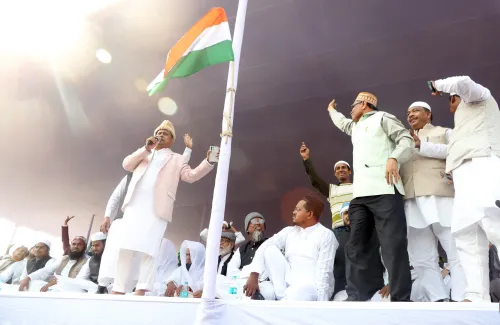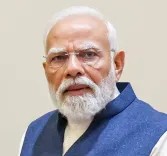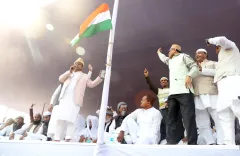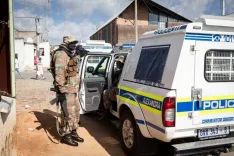Is Pakistan Propaganda Flooding Social Media with Fake Videos?
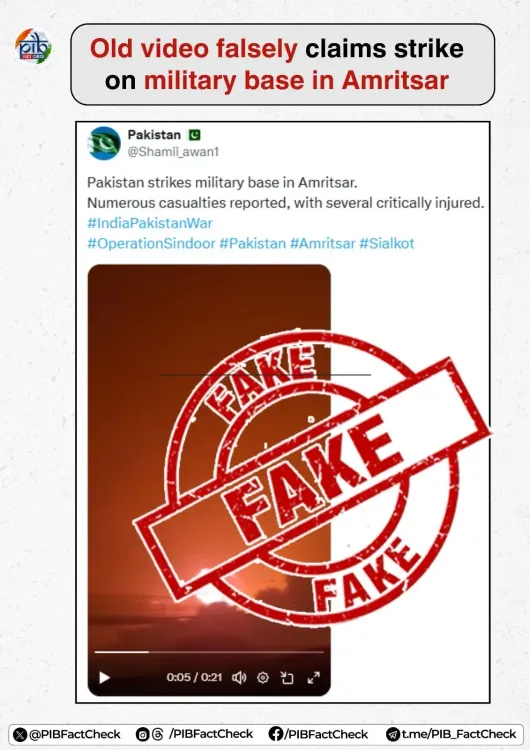
Synopsis
Key Takeaways
- India's Operation Sindoor targeted terror sites in response to a deadly attack.
- Pakistani media is spreading misleading narratives to distort the situation.
- Fact-checkers are actively debunking false claims.
- Public reliance on official sources is essential for accurate information.
- Be cautious of manipulated content in the media.
New Delhi, May 8 (NationPress) Following India's decisive counterterrorism operations under Operation Sindoor, various media outlets and social media profiles linked to the Pakistani government have been found spreading misleading and fabricated narratives to manipulate the truth regarding the operation.
On Wednesday, Indian forces executed a series of precise strikes targeting nine significant terror installations in Pakistan and Pakistan-occupied Kashmir (PoK), as a response to the April 22 terror attack in Pahalgam, which tragically resulted in the deaths of 26 civilians.
This operation represents a critical chapter in India's ongoing battle against cross-border terrorism.
In the aftermath of these strikes, a surge of disinformation flooded social media, as Pakistani media outlets and their affiliated accounts propagated false narratives and unverified allegations across various platforms, especially on X.
Independent analysts and India's official fact-checking authorities quickly labeled numerous claims as unfounded.
Among the most circulated falsehoods was the accusation that Pakistan had bombed an Indian military installation in Amritsar.
The video purportedly supporting this claim, which depicted huge flames illuminating the night sky, was swiftly debunked.
Fact-checkers traced the footage back to a wildfire in Valparaiso, Chile, occurring in 2024, which had no connection to any military activities in either India or Pakistan.
The Press Information Bureau's Fact Check division promptly addressed the misinformation, stating: "Pakistan Propaganda Alert! Pakistan-based accounts are sharing outdated videos falsely alleging strikes on a military base in Amritsar. The video being circulated is from a wildfire in 2024. Please refrain from sharing unverified information and rely solely on official sources from the Government of India for accurate updates."
Despite these clarifications, numerous pro-Pakistan accounts, including those associated with the Inter-Services Public Relations (ISPR), persistently promoted similar content.
Many images and videos shared by Pakistani sources were either digitally manipulated or sourced from unrelated events, often years old, and recast to fabricate a narrative of retaliation and military strength.
Observers noted that even key political figures engaged in sharing discredited material and making unfounded claims of successful counterstrikes.
Analysts have described this as a coordinated effort by Pakistan's information apparatus to alter public perception following India's operation.
Experts monitoring the spread of misinformation have pointed out that the deployment of manipulated content, such as outdated war footage and repurposed disaster videos, is part of a long-standing strategy employed by Pakistan's state-affiliated media to sustain a psychological narrative of equivalence and defiance against India, particularly after significant Indian military operations.
In light of the surge in misinformation, the Indian government reiterated its appeal for the public and the media to depend solely on verified updates from official channels.
Authorities also cautioned against the risks of disseminating unverified or fake news which could incite unnecessary panic or skew public perception.


